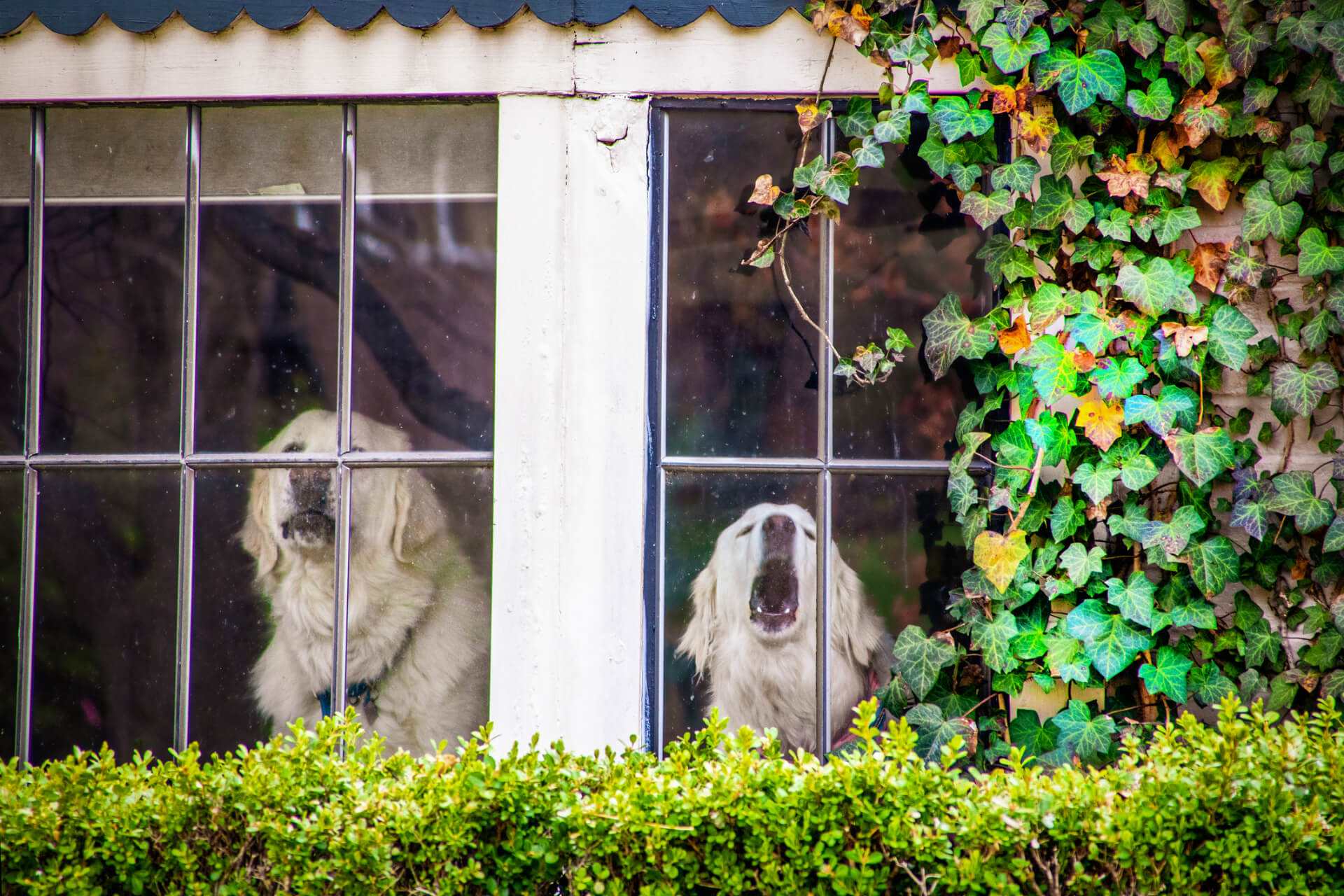
Dogs bark for a variety of reasons and determining which category of barking is key in resolving excessive barking issues. Barking is communication, what is the dog trying to communicate, what does it all mean?
There are several types of dog barking
The most common reasons for barking include fear, frustration, boredom, and excitement. Below are examples of the various types of barking to help you determine what your dog may be trying to communicate.
Fear barking
This type of barking is at the top because a fearful dog needs immediate intervention and empathy to help them overcome their fear. Dogs that suffer from fear cannot control this behavior because it is a deep-seated emotion. Their barking is a symptom of how they are feeling emotionally.
When dogs are in this state, they can’t focus, they have tunnel vision towards the fearful stimulus. To many of us this behavior seems irrational (it’s just a friendly person coming to say hi) but to the fearful dog alarm bells are sounding warning of imminent danger and are desperately trying to communicate to keep a distance and stay away.
Fear barking is to communicate distrust and to create distance from the scary stimulus.
Frustration barking
Just as we may get frustrated, so do our dogs. Frustration barking many times is unintentionally reinforced.
Frustration barking communicates anger! Anger in, “I’m not getting what I want, and I want it now”! For example, a toy rolling under the couch, wanting to go outside, or while you sit down to eat.
These dogs have learned through reinforcement that demanding behavior is successful. They get what they want when they demand and have learned to communicate what they want by barking, and when those demands aren’t meant they bark even more due to frustration and to communicate their displeasure.
Boredom barking
Sadly many dogs spend a great deal of time during the day alone with nothing to do. These dogs lack mental and physical stimulation and may bark or become destructive when left alone.
Sometimes this barking begins to fade when the dog gets familiar with departures, and sometimes gets worse if the dog has pent-up energy that is not getting released through consistent enrichment and exercise.
Excited barking
Arousal causes many dogs to get excited where they lose control over their impulsivity to bark.
Barking of this nature is triggered by events that cause arousal. Arriving home after being gone all day, pulling out a favorite toy, the anticipation of going on a walk, car rides, or being let out to go play in the yard, are all examples of barking due to excitement.
These dogs often have never learned to control their impulses and therefore can’t contain their excitement.
